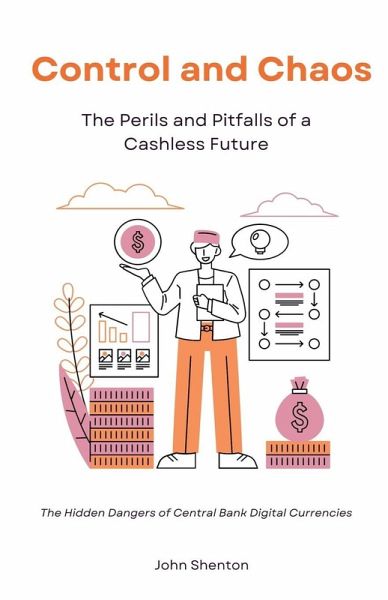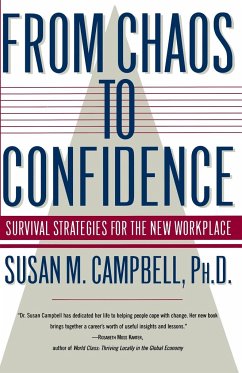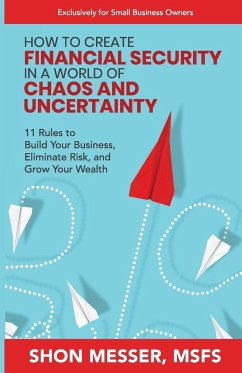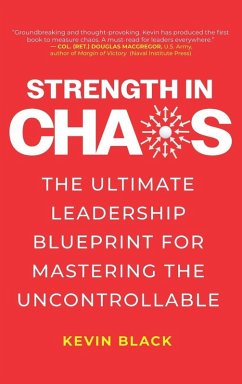
Control and Chaos

PAYBACK Punkte
7 °P sammeln!
In Control and Chaos: The Perils and Pitfalls of a Cashless Future, I explore the profound transformations that money has undergone, from its earliest forms to today's digital currencies. The book begins with an overview of how monetary systems have evolved, transitioning from barter and coins to the rise of digital transactions. It examines how cryptocurrencies like Bitcoin and Ethereum have influenced central banks worldwide to develop their own Central Bank Digital Currencies (CBDCs). This technological shift is not merely an upgrade but represents a seismic change in how money is created, ...
In Control and Chaos: The Perils and Pitfalls of a Cashless Future, I explore the profound transformations that money has undergone, from its earliest forms to today's digital currencies. The book begins with an overview of how monetary systems have evolved, transitioning from barter and coins to the rise of digital transactions. It examines how cryptocurrencies like Bitcoin and Ethereum have influenced central banks worldwide to develop their own Central Bank Digital Currencies (CBDCs). This technological shift is not merely an upgrade but represents a seismic change in how money is created, managed, and controlled. One of the most critical aspects of CBDCs is their potential to centralise power. In Chapter 3, I explore the dangers posed by government control and surveillance. CBDCs, through programmable features, could allow governments to monitor and dictate how individuals spend their money, possibly limiting purchases or freezing accounts. This scenario raises serious concerns about privacy, economic independence, and personal freedoms, leading to an uneasy balance between efficiency and control. Throughout the book, I examine this double-edged sword, where CBDCs could improve financial efficiency and reduce fraud but also pave the way for unprecedented governmental overreach. Chapter 7 delves into the legal and ethical challenges that will inevitably arise, questioning whether new regulations will protect civil liberties or erode them. The global landscape for CBDCs is equally complex. In Chapter 8, I analyse how countries such as China, the United States, and the European Union are racing to establish dominance through their digital currencies. China's Digital Yuan, for instance, could become a powerful geopolitical tool, potentially reshaping international trade and diplomacy. Whether CBDCs will ease global trade or amplify geopolitical tensions remains an open question. The risks of a fully digital world extend beyond politics and ethics. In Chapter 4, I address the vulnerabilities of digital currencies to cyberattacks, with entire financial systems at risk of being hacked or held ransom. A successful cyberattack could have catastrophic consequences, disrupting economies and causing social chaos, which I discuss in Chapter 6. A major technical failure in a CBDC system could leave citizens unable to access basic necessities, potentially sparking widespread unrest and political instability. Despite these risks, I propose safeguards to mitigate the challenges of a cashless future in Chapter 9. Blockchain technology, with its decentralised architecture, could offer a more secure alternative or complement to CBDCs. Additionally, I argue for retaining physical cash as a backup, ensuring that individuals retain a measure of economic autonomy even in a digital world. One of the central themes of Control and Chaos is the importance of public discourse. As CBDCs become a likely reality, citizens must engage in meaningful debates about the future of money. Transparency, accountability, and public involvement are critical in shaping systems that serve the public good rather than merely governmental or corporate interests. Ultimately, this book is not just about the evolution of money but also about the power dynamics that influence our world. The future of money will be digital, but whether this future fosters a more inclusive, fair financial system or a dystopian landscape of control and surveillance depends on the decisions we make today. Control and Chaos invites readers to reflect on whether we are willing to trade privacy and freedom for the convenience and innovation of a cashless society.













